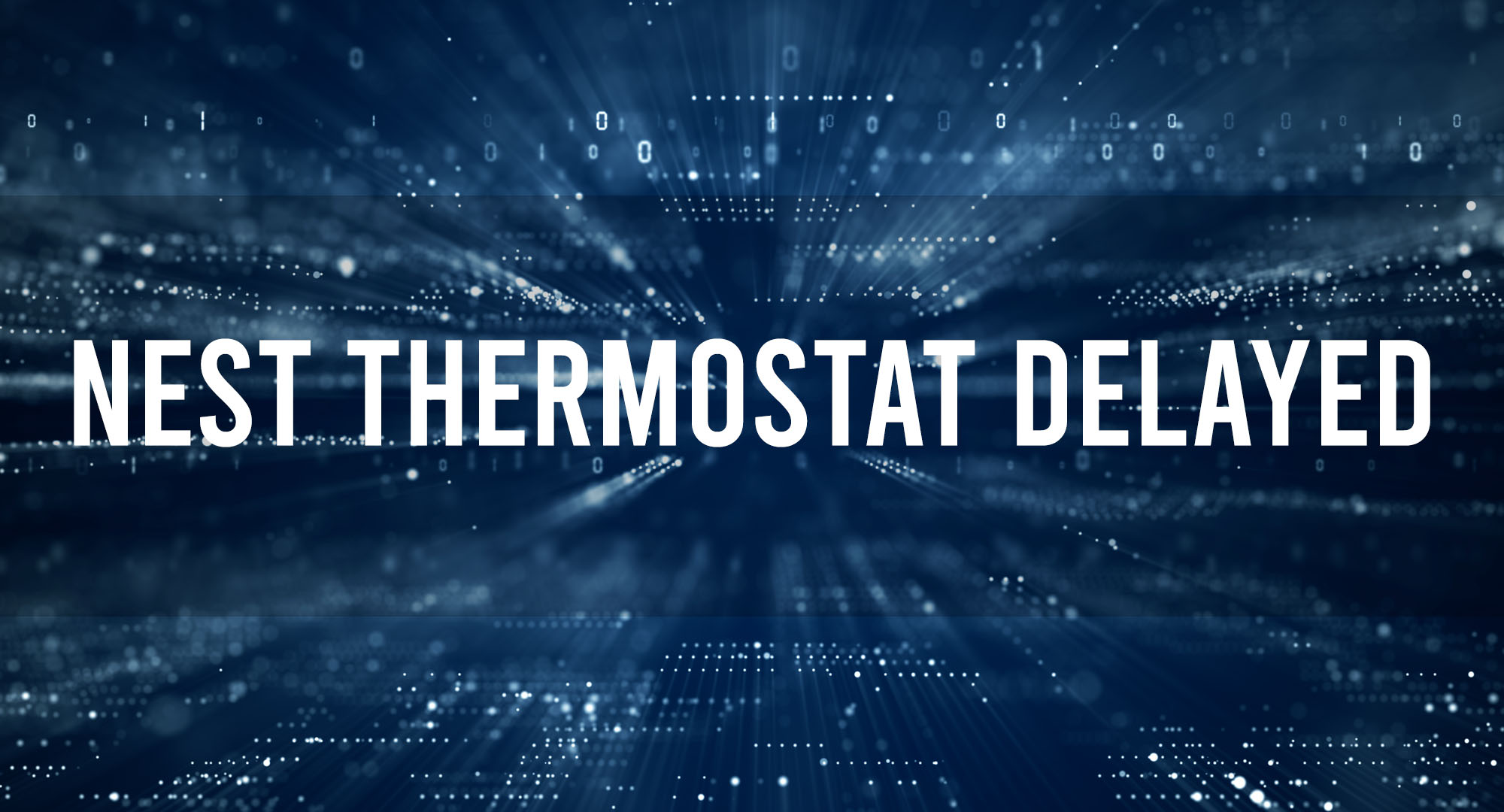You’re sitting at home, trying to enjoy a relaxing evening, when suddenly you realize it’s a bit too cold for comfort. You reach for your trusty Nest Thermostat, only to find that it’s taking forever to respond to your commands. What gives? In this article, we’ll dive into the world of Nest Thermostat delays, exploring common causes, troubleshooting tips, and ways to optimize your settings for faster response times. So, grab a blanket and let’s get started!
Common Causes of Nest Thermostat Delays
Table of Contents
Software Updates
One of the most common reasons for a Nest Thermostat delay is a software update. When your thermostat is updating its software, it may become unresponsive or slow to react to your commands. This is normal and should resolve itself once the update is complete.
Network Congestion
Another common cause of Nest Thermostat delays is network congestion. If your Wi-Fi network is overloaded with devices or experiencing interference, it can cause your thermostat to respond slowly or not at all.
The Impact of Wi-Fi Connectivity on Nest Thermostat Performance
Signal Strength
Your Nest Thermostat relies on a strong Wi-Fi signal to function properly. If your thermostat is too far from your router or there are obstacles between them, it can cause delays in response times.
Router Compatibility
Not all routers are created equal, and some may not be fully compatible with your Nest Thermostat. If you’re experiencing delays, it’s worth checking to see if your router is on Nest’s list of compatible devices.
Troubleshooting Tips for Nest Thermostat Delays
Restart Your Thermostat
Sometimes, a simple restart can resolve Nest Thermostat delays. To do this, go to your thermostat’s settings, select “Reset,” and then choose “Restart.”
Check Your Wi-Fi Connection
If your Nest Thermostat is experiencing delays, it’s important to ensure that it’s connected to your Wi-Fi network. You can check this by going to your thermostat’s settings and selecting “Network.”
Update Your Thermostat’s Software
If your thermostat’s software is out of date, it can cause delays in response times. To check for updates, go to your thermostat’s settings, select “Software,” and then choose “Update.”
How to Optimize Your Nest Thermostat Settings for Faster Response Times
Enable Airwave
Airwave is a feature that helps your thermostat respond more quickly to temperature changes. To enable Airwave, go to your thermostat’s settings, select “Nest Sense,” and then choose “Airwave.”
Adjust Your Schedule
If your thermostat is following a schedule that doesn’t match your needs, it can cause delays in response times. To adjust your schedule, go to your thermostat’s settings, select “Schedule,” and then make any necessary changes.
The Role of HVAC Systems in Nest Thermostat Delays
System Compatibility
Not all HVAC systems are compatible with Nest Thermostats. If you’re experiencing delays, it’s important to ensure that your system is compatible with your thermostat.
System Maintenance
Regular maintenance of your HVAC system can help prevent Nest Thermostat delays. Be sure to clean your filters, check your ducts, and schedule regular tune-ups with a professional.
Comparing Wired and Wireless Options
Wired Thermostats
Wired thermostats are connected directly to your HVAC system, which can result in faster response times. However, they may be more difficult to install and require professional assistance.
Wireless Thermostats
Wireless thermostats, like the Nest, rely on Wi-Fi connectivity to communicate with your HVAC system. While they’re easier to install, they can be more susceptible to delays due to network congestion or interference.
How to Prevent Future Nest Thermostat Delays?
Invest in a Mesh Wi-Fi System
A mesh Wi-Fi system can help ensure that your Nest Thermostat has a strong, consistent connection to your network, reducing the likelihood of delays.
Keep Your Thermostat’s Software Up to Date
Regularly updating your thermostat’s software can help prevent delays and ensure optimal performance.
Frequently Asked Questions
Can a weak Wi-Fi signal cause Nest Thermostat delays?
Yes, a weak Wi-Fi signal can cause delays in response times. Ensure that your thermostat is within range of your router and that there are no obstacles between them.
Do software updates cause Nest Thermostat delays?
While your thermostat is updating its software, it may become unresponsive or slow to react to your commands. This is normal and should resolve itself once the update is complete.
Is my HVAC system causing my Nest Thermostat delays?
It’s possible that your HVAC system is contributing to your thermostat’s delays. Ensure that your system is compatible with your thermostat and that it’s properly maintained.
Conclusion
Nest Thermostat delays can be frustrating, but with a little troubleshooting and optimization, you can ensure a seamless, responsive experience. By understanding the common causes of delays, taking steps to improve your Wi-Fi connectivity, and maintaining your HVAC system, you’ll be well on your way to a comfortable, efficient home.

Timothy is a tech enthusiast and has been working in the industry for the past 10 years. He has a vast knowledge when comes to technology and likes to help people with this knowledge.
